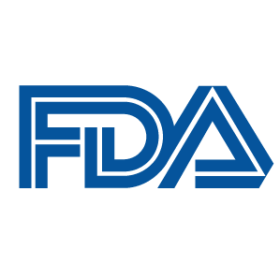
product safety

MoCRA: Talc Testing and Sample Preparation Requirements

As discussed in the Product Perspective, the Modernization of Cosmetics Regulation Act of 2022 (MoCRA) represents a major shift in cosmetic industry regulations. This article, in a continuing series of posts diving into each aspect of MoCRA, covers the talc testing and sample preparation requirements which will be established by the FDA under MoCRA.
Continue Reading MoCRA: Talc Testing and Sample Preparation Requirements
MoCRA: FDA Draft Guidance on Facility Registration and Product Listing

As we previously discussed, MoCRA requires cosmetic product manufacturer and processors to register their facilities with the U.S. Food and Drug Administration (FDA). On August 7, 2023, FDA announced that it had published a draft guidance on cosmetic product facility registration and product listings, as required under the Modernization of Cosmetics Regulation Act of 2022 (MoCRA). The draft guidance intends to help the industry by providing relevant requirements and definitions, explaining who is responsible for making submissions, what details to include, and how and when to make the submissions. It also provides information on exemptions, such as those for certain small businesses.
Continue Reading MoCRA: FDA Draft Guidance on Facility Registration and Product Listing
MoCRA: A New Era in the Regulation of Cosmetic Products

The Modernization of Cosmetics Regulation Act of 2022 (“MoCRA”) was signed into law on December 29, 2022. MoCRA expands the authority of the U.S. Food and Drug Administration (“FDA”) to regulate cosmetics and serves as the most significant change to the regulation of cosmetics since the passage of the Federal Food, Drug, and Cosmetic (FD&C) Act in 1938. MoCRA is a seismic shift in the world of cosmetic regulation, bringing new authorities to the FDA that are similar to those that currently exist for food, drugs and medical devices, among other regulated products. MoCRA has sweeping implications for domestic and international cosmetics manufacturers that market products in the U.S.
Continue Reading MoCRA: A New Era in the Regulation of Cosmetic Products
Mary T. Boyle: New Commissioner for the Consumer Product Safety Commission

The President swore in a new face to the Commission for the Consumer Product Safety Commission (CPSC) on June 30, 2022. Mary T. Boyle, however, is not an entirely new face as she served in various positions within the CPSC for more than a decade. She formerly served in various leadership rules, including CPSC’s Executive Director from 2018 before being confirmed as the new Commissioner. Ms. Boyle also served as CPSC’s Senior Counselor for Policy and Planning, General Counsel, and Deputy General Counsel.Continue Reading Mary T. Boyle: New Commissioner for the Consumer Product Safety Commission

U.S. Senate Committee Approves Biden’s CPSC Nominations
In July of 2021, after more than five months of silence, President Biden finally announced his nominations to the U.S. Consumer Product Safety Commission (“CPSC”), which included Alexander Hoehn-Saric, as Commissioner and Chair, Richard Trumka Jr., as Commissioner, and Mary T. Boyle, as Commissioner.
Continue Reading U.S. Senate Committee Approves Biden’s CPSC Nominations

Heavy Metals in Baby Food – Congressional Report Unleashes a Flood of Litigation
Heavy metals, such as arsenic, lead, cadmium, and mercury, are present in baby foods produced by U.S. baby food manufacturers according to a report released in February by the U.S. House of Representatives Subcommittee on Economic and Consumer Policy. Heavy metals are considered dangerous to human health and are especially concerning for children and babies, who are more susceptible to the neurological effects associated with exposure to heavy metals.
Continue Reading Heavy Metals in Baby Food – Congressional Report Unleashes a Flood of Litigation